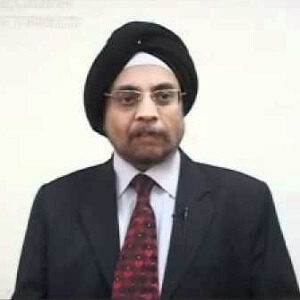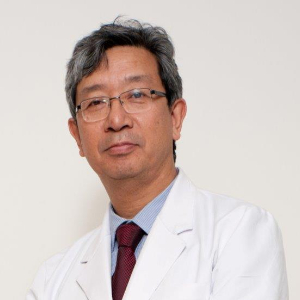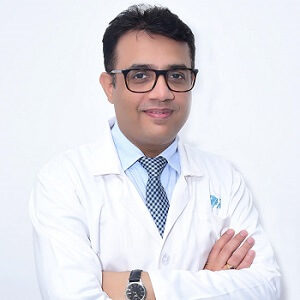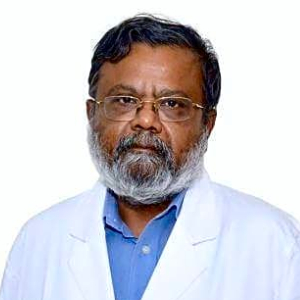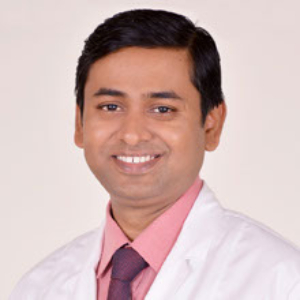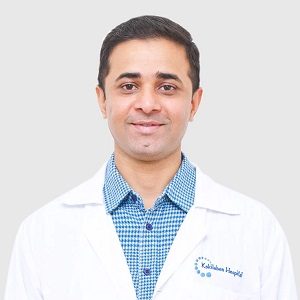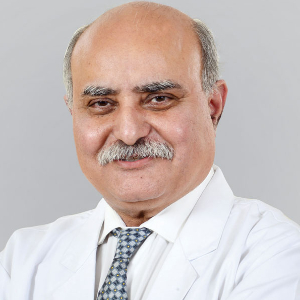Best Doctors in India for Alcoholic Hepatitis Treatment
- Top Pediatric Endocrinologist and Diabetologist | Apollo Hospital, New Delhi, India
- 36+ Years Experience
- Indraprastha Apollo Hospital, New Delhi
Profile Highlights:
- Dr. I P S Kochar is one of the finest Pediatric Endocrinologists in India, having over 36 years of experience in endocrinology. He is a Senior Consultant in Pediatric and Adolescent Endocrinology and Diabetology, currently serving at Indraprastha Apollo Hospital in New Delhi.
- Dr. Kochar specializes in the treatment of Growth disorders, metabolic disease, Dyslipidemia, Thyroid Disorders, Osteoporosis, Jaundice, and other Endocrinology problems in children and adolescents. One can also consult Dr. Kochar for weight & height and diabetes management.
- With an impressive educational background, including an MD, MAMS from Vienna, MRCPCH from London, and a fellowship in Pediatric Endocrinology from Great Ormond Street Hospital in London, Dr. Kochar is a leading expert in his field.
- Top Neurosurgeon | Fortis Memorial Research Institute | Gurugram, India
- 32+ years’ experience
- Fortis Memorial Research Institute
Profile Highlights:
- Dr. Rana Patir is one of the most experienced and highly qualified Neurosurgeons in India.
- He holds an extensive experience of 32+ years as a neurosurgeon and has performed more than 10,000 neurosurgical procedures till date.
- Dr. Patir is an expert in all kinds of neuro and spine surgeries with a specialization in minimally invasive brain and spine surgery, Epilepsy surgery, pediatric neurosurgery, and neurovascular surgery.
- Gastroenterologist, Hepatologist, Gurugram, India
- Over 25 years’ experience
- Artemis Hospital, Gurgaon
Profile Highlights:
- Dr. Sakshi Karkra is one of the best Pediatric gastroenterologists in Gurugram.
- She has special interest/ expertise in Colonoscopy, Upper GI Endoscopy, Capsule endoscopy, Enteroscopy, Endoscopic variceal ligation, Foreign body removal, Stricture & achalasia dilatation, Polypectomy, Anal manometry, Liver Biopsy, and Colonic manometry.
- Top Pediatric Hemato-oncologist & BMT Specialist | Apollo Hospital, New Delhi, India
- 15+ Years Experience
- Indraprastha Apollo Hospital, New Delhi
Profile Highlights:
- Dr. Gaurav Kharya is one of India’s top pediatric hematologists. He has over 17 years of expertise and is affiliated with Indraprastha Apollo Hospital.
- Dr. Kharya specializes in Pediatric Hemato-Oncology, Immunology, and BMT. He has extensive expertise in transplanting in children with benign or malignant blood abnormalities, immunological disorders, and other conditions both nationally and internationally.
- Dr. Kharya performed around 600 BMTs with his team. He undertook the first Haploidentical BMT for sickle cell disease in India. He also depleted TCR alpha beta CD 19 in invitro by haploidentical BMT in a 4-month-old baby with severe combined immunodeficiency.
- Thoracic Onco Surgeon, New Delhi, India
- Over 30 years’ experience
- Sir Gangaram Hospital New Delhi
Profile Highlights:
- Dr. Sabyasachi Bal specializes in Thoracic Onco surgery and provides treatment for lung cancer, chest cancer, and other types of thoracic malignancies.
- He has over 30 years of experience in the field and has reformed thoracic cancer surgery in India. He has also added Robotic Thoracic Surgery to his list of specializations.
- Dr. Sabyasachi Bal’s primary focus lies in the management and treatment of cancers affecting the thoracic regions and organs near the lungs and chest of both adolescents and adults.
- Pediatric Neurologist, Chennai, India
- Over 26 years’ experience
- Apollo Children Hospital Chennai
Profile Highlights:
- Dr. Sivaji Vani serves as a Pediatric Neurology Consultant at Apollo Hospitals, Chennai.
- Before Chennai, she served in the UK and has developed a sound knowledge in the field of Pediatric Neurology.
- Her overall experience of 26 years involves the treatment of patients with giddiness problems, neurological problems, vertigo, epilepsy, stroke, spinal disorders, etc.
- Top Neurologist | Max Hospital, Saket, New Delhi, India
- 13+ Years Experience
- Max Super Specialty Hospital, Saket, New Delhi
Profile Highlights:
- Dr. Mukesh Kumar is a highly accomplished neurologist currently affiliated with Max Healthcare. He specializes in a range of neurological disorders and has made significant contributions in his field.
- His expertise spans across various areas, including Deep Brain Stimulation, Movement Disorders, Myasthenia Gravis, Parkinson’s Disease, etc.
- Additionally, Dr. Mukesh Kumar holds an impressive academic record. He received his MBBS and MD (Medicine) degree from IMS, BHU, Varanasi, followed by DNB (Medicine) and DM (Neurology) from AIIMS, New Delhi.
- Top Interventional Neuroradiologist | Kokilaben Hospital, Mumbai, India
- 23+ Years Experience
- Kokilaben Dhirubhai Ambani Hospital
Profile Highlights:
- Dr. Manish Kumar Srivastava is a renowned Interventional Neuroradiologist in Mumbai and is currently associated with Kokilaben Dhirubhai Ambani Hospital, Mumbai as the Head of Interventional Neuroradiology.
- His expertise lies in treating strokes and vascular malformations, with a particular focus on dural arteriovenous fistulas (AVFs) of the brain.
- Additionally, Dr. Shrivastava is actively engaged in pioneering work on the endovascular management of cerebral venous thrombotic disease.
- He also performs very sophisticated neuro-interventions in hospitals around the country, including Sir H. N. Hospital, Lilavati Hospital, Nanavati Hospital, and others.
- Top Uro - Oncologist | Max Hospital, Saket, New Delhi, India
- 22+ Years Experience
- Max Super Specialty Hospital, Saket, New Delhi
Profile Highlights:
- With an overall work experience of more than 22 years, Dr. Amit Goel is undoubtedly among the finest Uro-Oncologist in India who has been practicing at Max Super Speciality Hospital in New Delhi as the Director and Unit Head of Renal Transplant and Urology.
- He has extensive experience treating over 3500 cases of urological cancers and performing more than 400 kidney transplants, including both ABO-compatible and incompatible cases.
- Dr. Goel received his training in General Urology, Laparoscopic procedures, Endoscopic Surgeries, Renal Transplants, and Emergencies in Urology during his MCh residency.
- Cardio Thoracic & Vascular Surgeon, Noida, India
- Over 38 years’ experience
- Fortis Hospital Noida
Profile Highlights:
- Dr. Ajay Kaul is a leading name in the field of Cardiothoracic and Vascular Surgery in India.
- He has over 3 decades of experience in performing cardiac surgeries and has done more than 25,000 cardiac operations till date.
- He specializes in Coronary Bypass surgery and is one of the best with the highest number of total arterial coronary bypass surgery (4000+) by using two internal mammary arteries from the chest and without any cuts on arms and legs.
- Dr. Ajay Kaul’s interest lies in complex congenital cardiac diseases in children, pediatric cardiac surgery, aneurysm surgery, valve repair surgery, and cardiac failure surgery.
- He is also an expert in minimally invasive cardiac surgeries (MICS) and has performed more than 5000 MICS which is the highest by any cardiac surgeon in India.
Best Hospitals in India for Alcoholic Hepatitis Treatment
ALCOHOLIC HEPATITIS
Alcoholic hepatitis is a liver infection, which is mainly caused by frequent, heavy use of alcohol. Fat can build up in the liver cells, which might lead to inflammation as well as scarring of the liver.
Alcoholic hepatitis might be mild or severe. A patient might even need a liver transplant if proper treatment is not provided, or if they don’t stop consumption of alcohol.
It is also notable that all heavy drinkers don’t develop this condition, and sometimes this condition even develops in people who drink moderately. However, if you are diagnosed with this condition, it is important for you to quit drinking alcohol. People who continue drinking alcohol might face a huge risk of serious liver damage as well as death.
Symptoms
Depending on the amount of damage to the liver, the symptoms can vary. If you are having a mild form of the disease, you might not even experience any symptoms at all. However, as the damage continues to grow, you might experience the following:
- Changes in appetite
- Dry mouth
- Weight loss
- Pain or swelling in the abdomen
- Jaundice, or yellowing of the skin or eyes
- Fever
- Nausea and vomiting
- Easy bleeding or bruising
- Changes in your mental state, including confusion
- Fatigue
The symptoms of this condition are similar to those caused by a few other health conditions. Therefore, if you develop any of these symptoms, it is best to get a proper diagnosis as well as begin treatment.
Causes & risk factors
Alcoholic hepatitis generally develops when the alcohol you drink causes damage to your liver. However, it is not clear why alcohol does this damages only to some heavy drinkers.
Few factors that are known to play a role in this condition include:
- The body’s process that breaks down alcohol produces some toxic chemicals
- These chemicals can trigger inflammation that can destroy the liver cells
- Thus, over time, scars replace healthy liver tissue, thus interfering with the function of the liver
- This irreversible scarring, which is also termed cirrhosis, is the final stage of alcoholic liver disease
If you have hepatitis C and continue to drink, even moderately, you are more likely to develop cirrhosis.
Some heavy drinkers are also malnourished because they don’t eat a proper balanced diet. Alcohol and its byproducts also prevent the body from absorbing nutrition properly. Lack of nutrition can contribute to liver cell damage.
Some other risk factors that can lead to this condition include:
- Your sex- Women are usually at a higher risk of developing alcoholic hepatitis since the way alcohol is processed in women is different.
- Binge drinking- Having over five drinks within two hours for men and four or more for women can increase the risk of alcoholic hepatitis.
- Obesity- Heavy drinkers who are overweight are also more likely to develop alcoholic hepatitis and to progress from that condition to cirrhosis.
- Race and ethnicity- Hispanic and Negroid people might be at higher risk of alcoholic hepatitis.
- Genetic factors- According to studies, there may be a genetic component in alcohol-induced liver disease. However, it is difficult to separate genetic and environmental factors.
Diagnosis
If you are showing symptoms of alcoholic hepatitis, your doctor will first inquire about your medical history and alcohol consumption. Next, he/she will perform a physical exam to see if you have an enlarged liver or spleen. They might also need a few more tests to confirm your diagnosis, such as:
- Complete blood count (CBC)
- Liver function test
- Ultrasound of the liver
- Abdominal CT scan
- Blood clotting tests
In some cases, a liver biopsy might also be needed to confirm the diagnosis of alcoholic hepatitis. A liver biopsy requires your doctor to remove a tissue sample from your liver, which is then tested in the lab. This method helps to show the severity and type of liver disease.
Treatment
Stopping alcohol consumption is the most important treatment for alcoholic hepatitis. There is no cure for this condition, but treatment can help in reducing or eliminating symptoms, or stopping its progression.
It is also important to note that scarring of the liver is permanent, but treatment can aim to restore as much function as possible.
Dietary changes
Medication
Liver transplant
The best hope of recovery is to be aware of the signs and symptoms as well as to reduce, manage, or if possible, completely stop consumption of alcohol.
Complications
Alcoholic hepatitis might lead to severe other complications such as:
- Enlarged veins (varices)- In this condition, blood that is unable to flow freely through the portal vein, can back up into other blood vessels in your esophagus or stomach.
- Hepatic encephalopathy- This condition can be caused by the buildup of toxins if your damaged liver is unable to remove all the toxins from your body. It involves confusion, drowsiness, and slurred speech.
- Ascites- Ascites is a condition in which the fluid that accumulates in the abdomen may get infected and thus, require treatment with antibiotics. Although this condition is not life-threatening, it can be a sign of advanced alcoholic hepatitis, or cirrhosis.
- Kidney failure- A damaged liver affects blood flow to the kidneys, thus resulting in kidney failure.
- Cirrhosis- The scarring of the liver might lead to liver failure.
Prevention
Alcoholic hepatitis might be prevented if you take the following steps:
- Drink alcohol in moderation, if at all- For healthy adults, moderate drinking means no more than one drink a day for women of all ages and men older than 65, and not over two drinks a day for men aged 65 and younger. However, if you prevent all alcohol, it is a certain way to prevent this condition.
- Check before mixing medications and alcohol- Ask your doctor if it’s safe to drink alcohol while you are taking medications. Consider reading the warning labels on over-the-counter medications as well. Don’t drink alcohol when you are taking medications that warn of complications when combined with alcohol.
- Protect yourself from hepatitis C- Hepatitis C is an infectious liver disease that is caused by a virus. If it is left untreated, it may lead to cirrhosis. If you are having hepatitis C and you consume alcohol, you’re generally more likely to develop cirrhosis than if you don’t drink.

